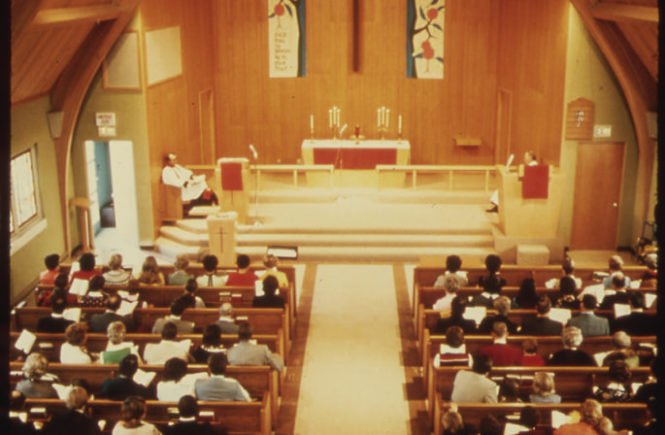When I first started reading the Bible, I was very confused about some of the great people of faith doing questionable things. Why were these people (I thought) I was supposed to look up to morally committing such terrible sins? Was the Bible condoning these atrocious things they did? Why were people offering up their daughters to be raped? Why did Noah get drunk and lay naked after the ark? Why did Solomon take so many wives and concubines? The Hall of Faith, as Hebrews 11 is often referred to, lists murderers, adulterers, and liars, yet these people were commended for their faith. I had first assumed these Bible stories were supposed to be about all good, upright, moral people and how we should emulate them. But I was wrong. The Bible isn’t a book about good people, but about a good God who chooses to use messy people.
The fact that over and over again in the Bible we see God using messed up people should bring us comfort because, well, we’re not perfect. We’re not always morally upright in every way and nobody comes from a completely pure past. We may think we’re not worthy of being used by God, but God has a long track record of using messy, imperfect people for his glory and plan. He’s used prostitutes and murderers and he’s used legalistic Pharisees. The beauty of the gospel is that we are accepted by God not because of what we’ve done, but because of what Jesus did, namely, his death and resurrection. Ephesians 2:8-9 says, “For by grace you have been saved through faith. And this is not your own doing; it is the gift of God, not a result of works, so that no one may boast.” Our actions, our morality, our good works cannot save us; our faith in Jesus and his works save us.
However, verse 10 goes on to say, “For we are his workmanship, created in Christ Jesus for good works, which God prepared beforehand, that we should walk in them.” We are saved by Jesus’s good work on the cross to a life where we are able to do God’s good works that he has for us. We have nothing to offer in ourselves, yet God chooses to use us. We’re messy, but Scripture shows over and over that God uses messy people for his glory. So, let us speak and remember the gospel in our l24ives.
But there’s more. We weren’t saved only into a relationship with God; we were brought into a family of believers. The fact that God uses messy people for his glory. This should not only encourage us in our own walks, but also when we see the messiness of others around us in the Church – the body of all believers in Jesus. How easy is it to apply the gospel to our lives (okay, sometimes it’s not easy), but not apply it in our hearts towards other believers? God is faithful in our own messiness and more than that, he is faithful even in the messy group of people that make up the Church. The difficult question we have to ask ourselves is: if God is faithful to his Church – even to the point of death – are we?
One way we can be faithful to the Church is by committing to a local church – flaws and all. The local church is a smaller body of believers in Christ committed to each other for the sake of the gospel. These are the believers you live life with on a daily basis. The problem is that each local body is comprised of many messy people. Are we willing to commit to other believers in the church despite their flaws? Are we willing to commit locally to a church to see God’s glory made known? Or, do we hop from church to church because it doesn’t meet all our preferences about the worship, the children’s ministry, the preaching, the people? (Of course, it’s worth noting that I’m talking about Biblical churches that love Jesus and preach truth. Please hop away from churches that are not theologically sound!)
So often we run away from solid churches because they don’t fit our needs. We look for a church as consumers instead of servants. We hop from one place to another searching for a flawless church, and never commit because we always find something wrong with the church. But every church has something wrong with it. When you put a bunch of messed up people together, it’s bound to be messy. But if God used all those people of faith in Hebrews 11, then can’t he use our imperfect churches?
Another way we can be faithful to the Church is by committing to loving the Church as a whole – flaws and all. Social media in particular has become a platform for bashing or shaming – and Christians are not exempt from participation, even among ourselves. I often find the temptation is strong for me to bash other believers in my heart for their different denominational views, their varying political views, their culture, their opinions about parenting, or their idolatry that seems ever so obvious to everyone except them. I forget the plank in my own eye and get annoyed at the speck of sawdust in my brother’s and sister’s eyes (Matthew 7:3). I forget that the same blood that cleansed me has cleansed them. I forget that we have a stronger bond through the blood of Christ than any biological blood relationship. I forget the Holy Spirit working in me towards sanctification is the same Holy Spirit they have working in them. I forget that while I expect grace from others, I don’t give grace to the same measure to others. My good friend, TaKasha (also a writer here) has a saying I love. When somebody says something negative about themselves like, “I’m so stupid!” she responds with, “Don’t talk about my friend that way!” Sometimes I wonder when we bash against other believers would Jesus say, “Don’t talk about my Bride that way!” How many times have we heard it preached to us that Jesus loves us like crazy?! But how often do we remember that Jesus loves our imperfect brothers and sisters to the same extent? We too must love others through their messiness, remembering that the Church is not a collection of good people, but of messy people being redeemed by our good God.
Loving others through their messiness doesn’t mean that we are content to leave them in their messiness. Jesus doesn’t do that with us. We must truly love our brothers and sisters by imitating Jesus and obeying the Scriptures. Our commitment to our family of believers is all over the Bible, particularly in the “one another” verses scattered throughout the New Testament. These verses show us how to live and love others:
-
“Be devoted to one another with brotherly affection” (Romans 12:10)
-
“Bear one another’s burdens” (Galatians 6:2)
-
“Encourage one another and build one another up” (1 Thessalonians 5:11)
-
“Instruct one another” (Romans 15:14)
-
“Stir up one another to love and good works” (Hebrews 10:24)
-
“Submitting to one another out of reverence for Christ” (Ephesians 5:21)
-
“Confess your sins to one another and pray for one another” (James 5:16)
-
“As each has received a gift, use it to serve one another” (1 Peter 4:10)
-
“Keep loving one another earnestly, since love covers a multitude of sins” (1 Peter 4:8)
This is true, Gospel-centered community. As a body of believers, we must learn to truly love one another through our imperfections and failures and build one another up so that we might collectively look more like Jesus. Jesus loves His Bride, the Church, so much that he died for it. It’s time we start following in his footsteps.
Our God is in the business of accomplishing his purposes using messy, broken people. He is truly a good God faithful to his messy Church. Let us take comfort that God can use us despite our failures and our imperfections. And let us find grace to extend to other believers in their messiness, as we strive together to be more like Jesus. Praise God for his grace and that he can somehow use us messy people for his glory! And praise God for Jesus – the only perfect One who gave up his perfection, took on our messiness, and gave us his perfection that we may one day stand before God holy, blameless, spotless, and without all this mess.
Additional resources:
Twelve Reasons Why Membership Matters






1 comment
I’m very proud of you and love this post. Keep loving Jesus and His Church as I know you do!